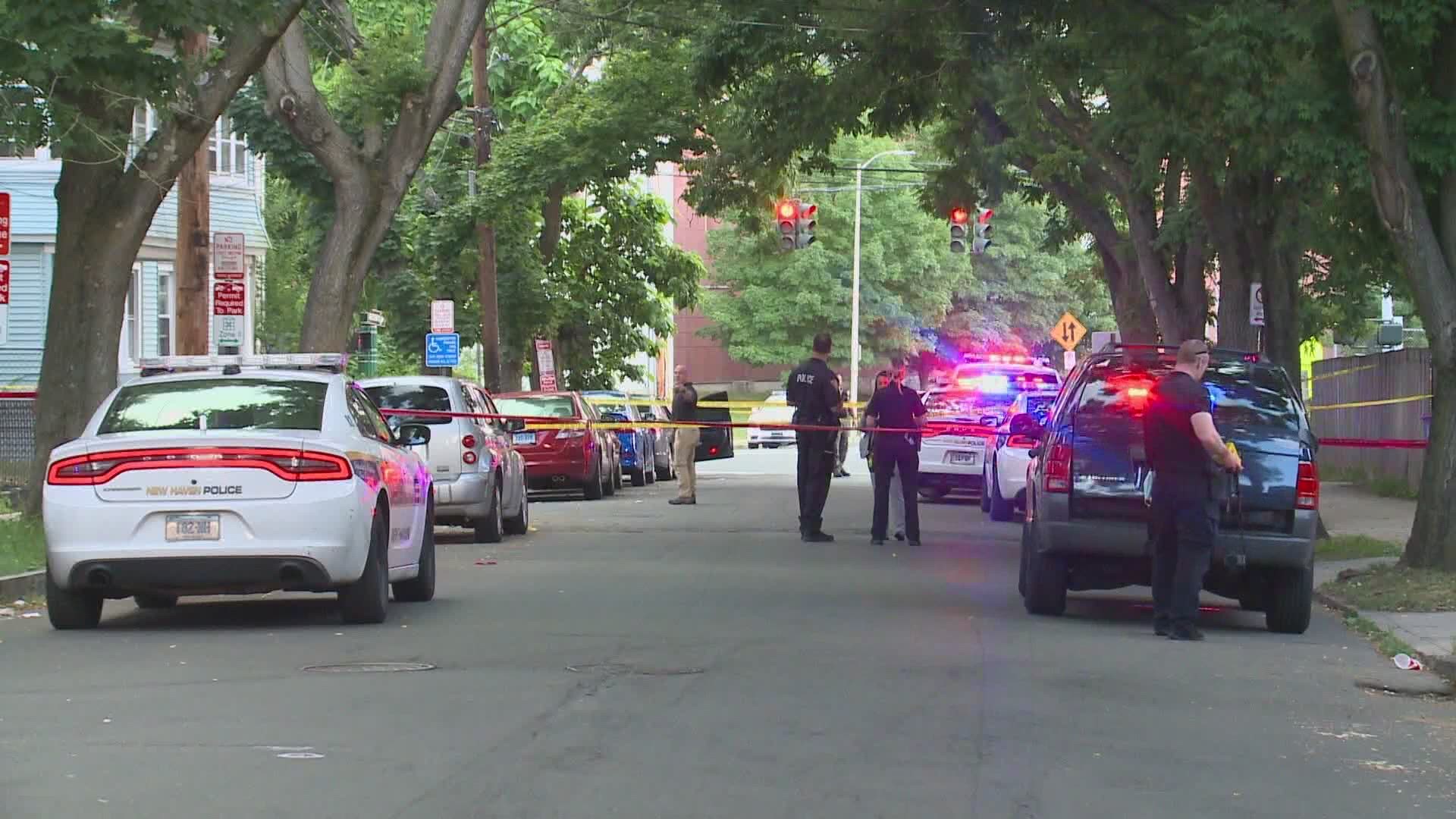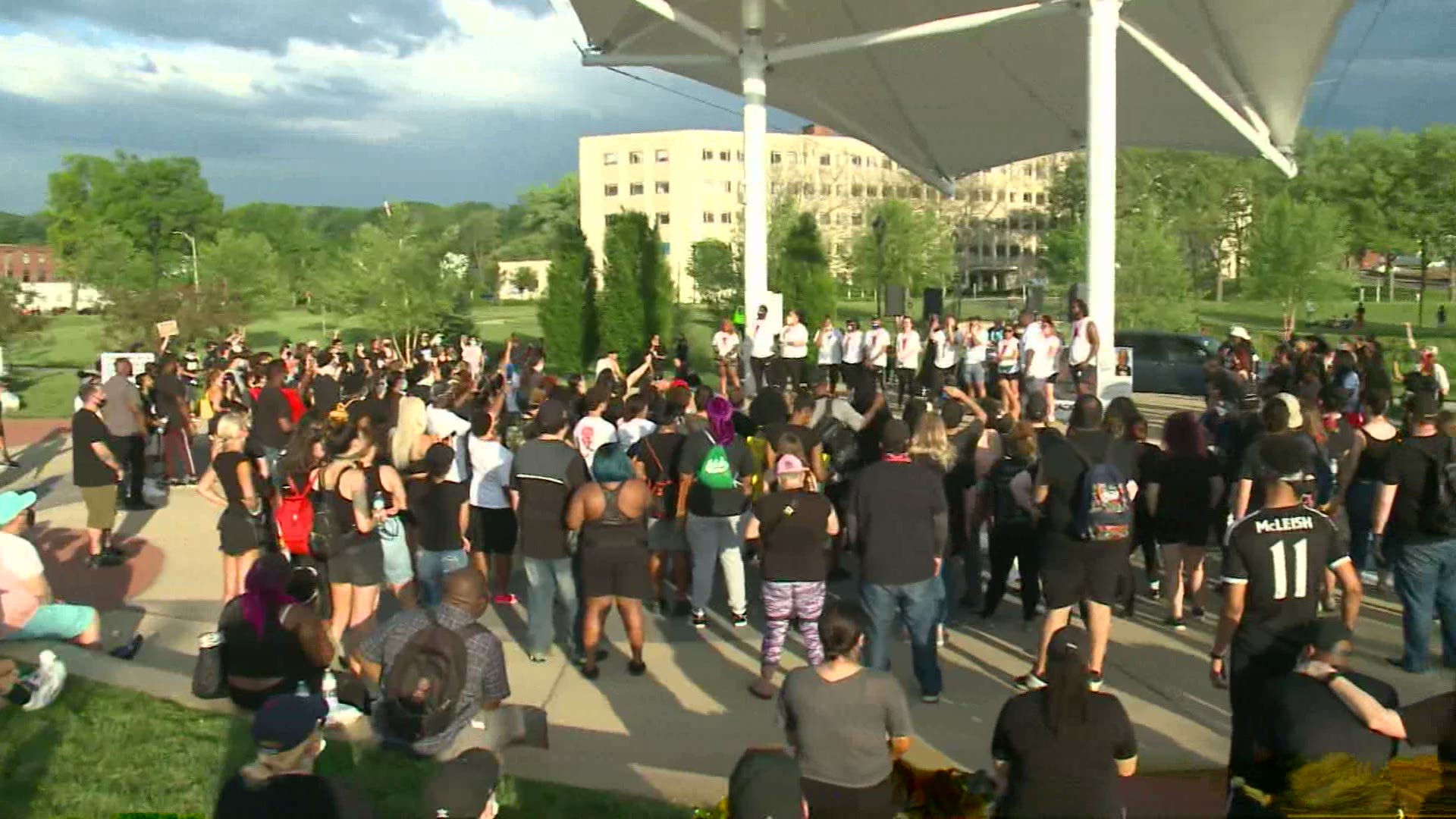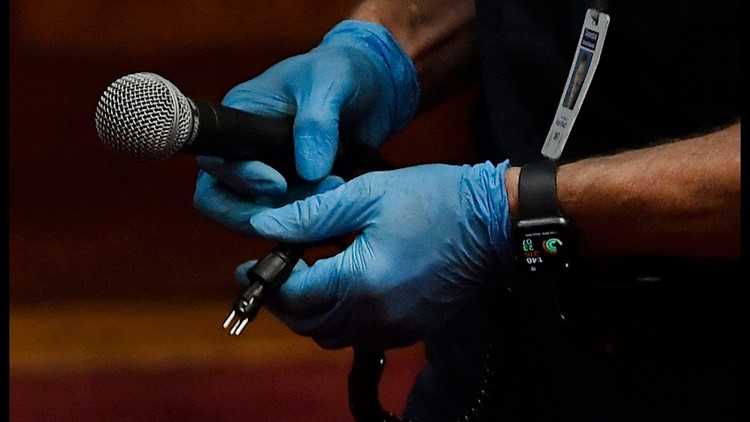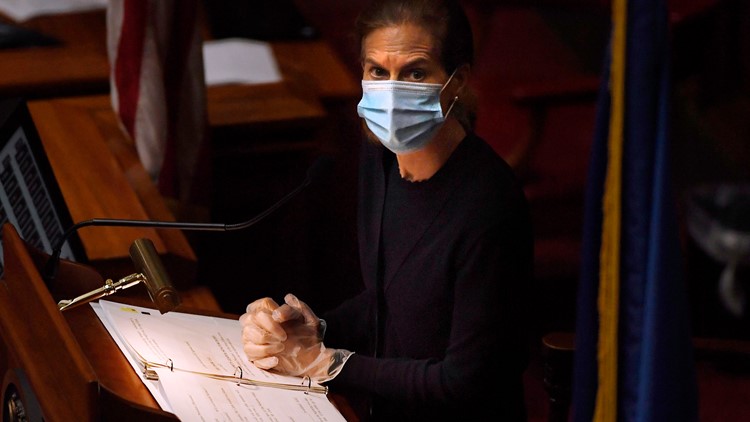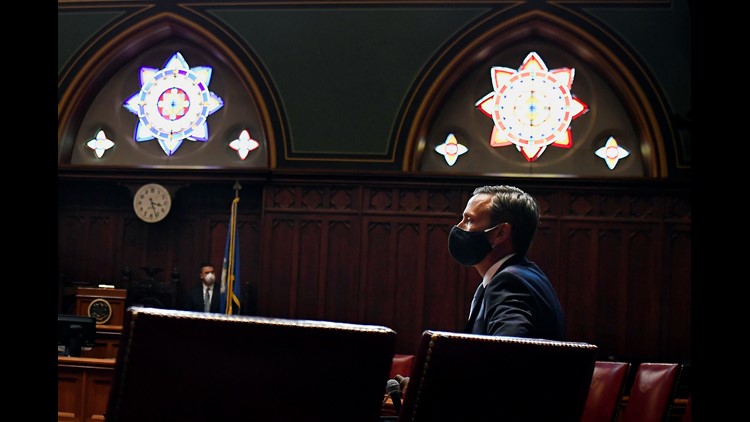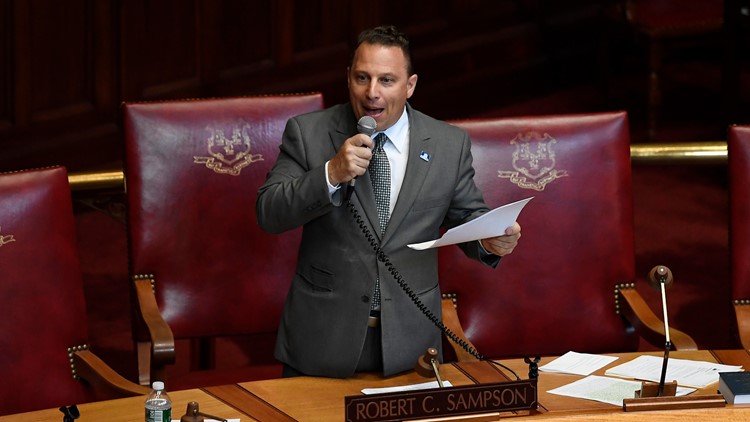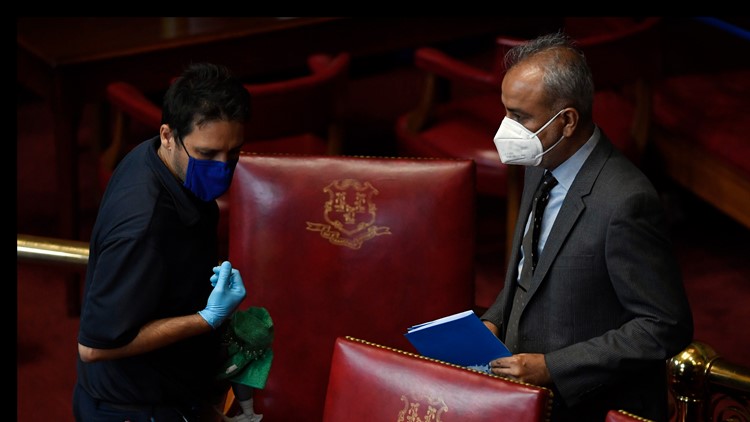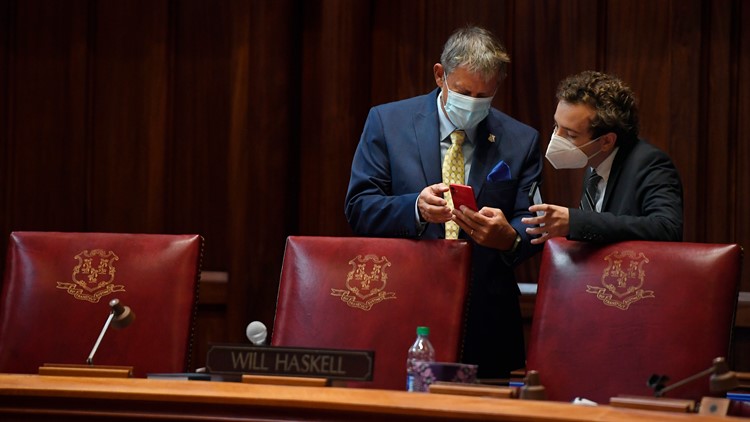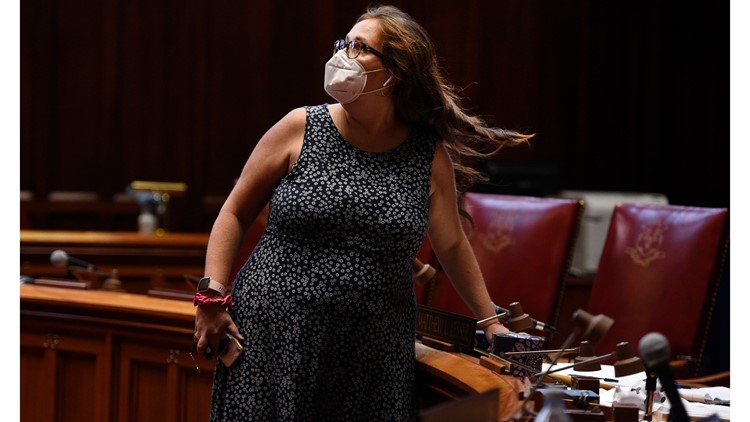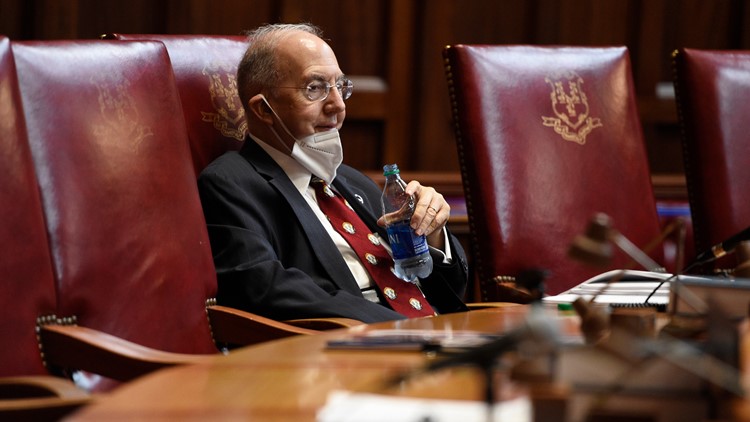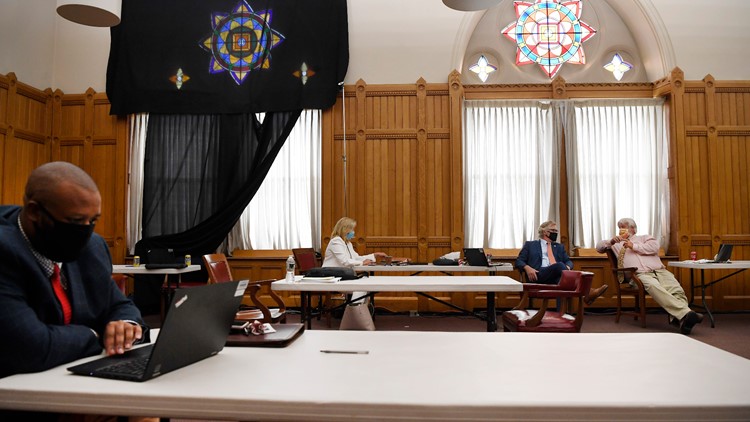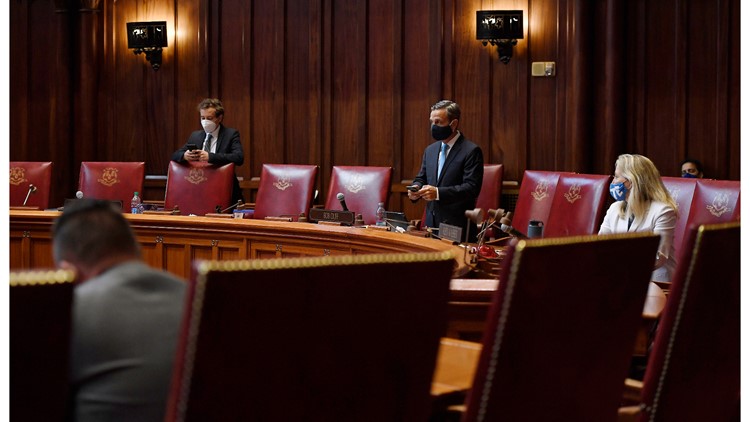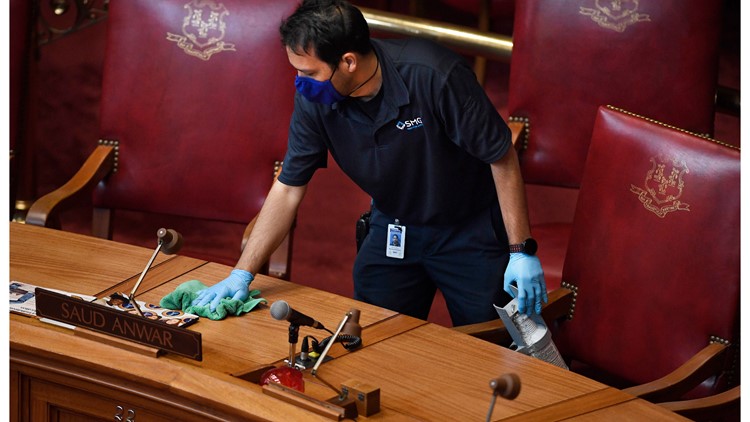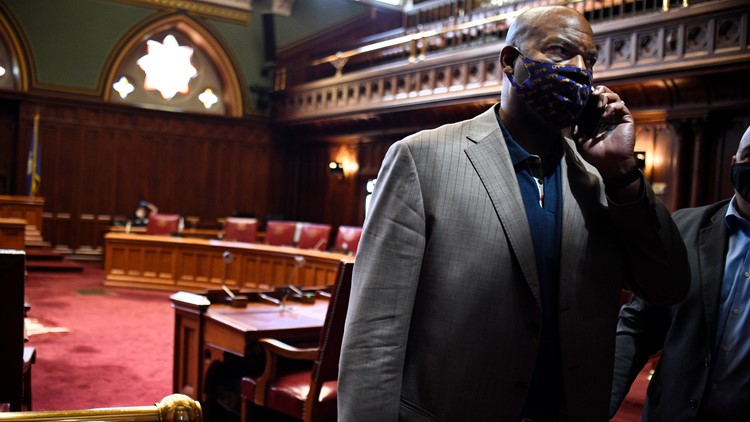CONNECTICUT, USA — The State Senate overnight passed a controversial police reform bill that called for many changes for departments, including changing qualified immunity for officers.
Gov. Ned Lamont said Wednesday that he expected to sign the bill, perhaps as soon as Thursday.
The bill would put in place if passed, implicit bias training, require body and dash cams, prohibit the use of military equipment, ban chokeholds, require officer bystander intervention, and mandate mental health assessments.
But the most controversial part of the bill came down to qualified immunity for officers. In the bill, it's stated any person who felt they were a victim in a police incident may bring a civil action for equitable relief or damages.
The bill also stated that qualified immunity will only be applied to officers going forward if it is clear they had acted in good faith whenever the incident occurred to cause the lawsuit.
The bill goes on to say that qualified (governmental) immunity will not be applied in suits that are for equitable relief and that complaints have to be filed within a year of the incident occurring.
The ACLU weighed in on the decision Wednesday morning:
“People have spent years telling the Connecticut General Assembly that police violence and racism exist in Connecticut, have gone unchecked, and that families harmed by police are denied justice and redress. Ending police violence will not be solved by any one bill, but the bill passed out of the legislature today is a start. The legislature must take stronger action in future sessions to end systemic racism and violence in policing, and policymakers must recognize that their work has only just begun. We applaud the majority of legislators who, in an act of solidarity with their Black and Latinx colleagues, voted to better protect the public from police violence. To the legislators who instead voted to shield the profession of policing from accountability, do better," said Melvin Medina, public policy and advocacy director of the ACLU of Connecticut.
The debate over the bill lasted into the overnight hours, finally voted on around 4 a.m.
Senate Republicans contend that, by eliminating qualified immunity, Connecticut police officers would now be personally exposed to paying a plaintiff if they lose a judgment.
"I understand the purpose but I think the way the bill is drafted, you are going to see a plethora of lawsuits brought against municipalities and officers. And a plaintiff’s lawyer--they are going to sue everybody. You are going to sue good cops and bad cops but you are going to sue everybody and see how it all shakes out," said Senate Minority Leader Len Fasano (R). "I think the municipalities are going to take an awful lot and I think good officers are going to start to retire and leave so they don’t have blemishes on their record."
But, Democrats say, if you're a good cop, you should not be concerned.
"I think that that it’s ironic that all of the debate focused on qualified immunity since that’s relatively a small change from current law," said Senate President Pro Tempore Martin Looney (D). "In order to not have the benefit of qualified immunity, a police officer conduct has to be malicious and willful and avenge high standards--a difficult standard to meet. There are many other components to the bill."
According to Republicans, cities and towns would have to make choices if this bill passes, especially being at least partially on the hook for body cameras and higher liability insurance with this law.
"Most certainly whether they’re going to retain the number of police officers they currently have on the police force or when they retire or just not fill those positions," said Sen. Minority Leader Pro Tempore, Kevin Witkos
And Republicans are critical of what they say is rushed legislation, given that this special legislative session was supposed to be focused on only COVID-19 related matters.
"We think we are responding to something that really is a crisis of confidence in our nation right now and that’s why we wanted to take action on it now," said Looney.
For Senator Gary Winfield (D-New Haven), a co-author of the bill, it's good policy.
"These things are not just about 'I don't want to see someone killed'" said Winfield. "They’re about the interaction of police in certain communities and the way that they are treated in the way that their power is used.
A police source in one of Connecticut's largest cities tells FOX61 they expect a mass exodus for their department. A Meriden Police source says up to one-third of their 123 sworn officers are exploring retirement or leaving the profession.

